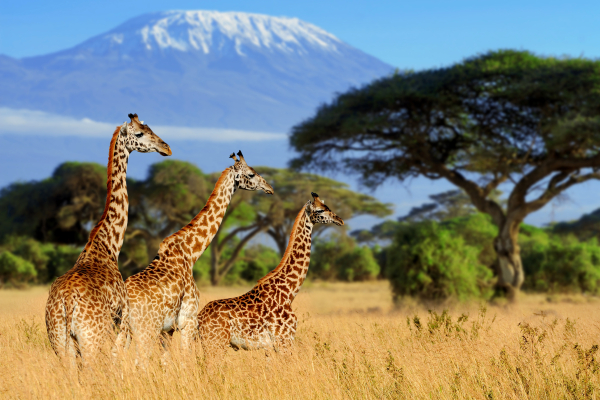- Europa
-
- Amstetten(7)
- Bad Schallerbach(1)
- Baden(4)
- Berg(1)
- Braunau am Inn(5)
- Bregenz(3)
- Bruck an der Mur(1)
- Graz(4)
- Hartberg(1)
- Innsbruck(5)
- Kemmelbach(1)
- Kitzbühel(4)
- Klagenfurt(5)
- Krems an der Donau(1)
- Kufstein(5)
- Leibnitz(1)
- Lienz(1)
- Liezen(1)
- Linz(5)
- Oetz(1)
- Punitz(1)
- Radstadt(1)
- Salzburg(5)
- St Polten(2)
- Steiermark(1)
- Steyr(1)
- Steyregg (1)
- Traun(3)
- Vienna(26)
- Villach(5)
- Völkermarkt(1)
- Wels(5)
- Wien(1)
- Wiener Neustadt(4)
-
- Aalst(1)
- Aarschot(2)
- Affligem(1)
- Anderlecht(5)
- Antwerp(11)
- Antwerpen(1)
- Arlon(6)
- Ath(2)
- Aubange(5)
- Bastogne (2)
- Blankenberge (1)
- Bruges(5)
- Brussels(15)
- Charleroi(5)
- Deinze(3)
- Dendermonde(1)
- Diest(2)
- Etterbeek(5)
- Geel(1)
- Genk(5)
- Gent(6)
- Geraardsbergen(1)
- Grimbergen (2)
- Hasselt(5)
- Heusden- Zolder(2)
- Ieper(1)
- Izegem(1)
- Knokke(4)
- Kortrijk(2)
- La Louviere(2)
- Leuven(5)
- Liege(4)
- Limburg(4)
- Lommel(1)
- Mortsel(1)
- Oostende(1)
- Turnhout(1)
-
- Chelyabinsk(1)
- Dubna(4)
- Gelendzhik(1)
- Irkutsk(1)
- Kaliningrad(1)
- Kazan(4)
- Krasnodar(3)
- Krasnoyarsk(1)
- Maykop(1)
- Moscow(50)
- Nizhny Novgorod(4)
- Novosibirsk(1)
- Omsk(1)
- Penza(1)
- Rostov-on-Don(2)
- Saint Petersburg(13)
- Samara(1)
- Saratov(1)
- Serpukhov (2)
- Sevastopol(3)
- Sochi(5)
- Stavropol(1)
- Surgut(1)
- Tyumen(2)
- Ufa(2)
- Vladivostok(3)
- Yekaterinburg (11)
-
- Alicante(8)
- Barcelona(113)
- Benalmadena(1)
- Benidorm(7)
- Castellón de la Plana(1)
- Denia(1)
- Estepona(1)
- Fuengirola (3)
- Ibiza(49)
- Jerez de la Frontera(1)
- Lanzarote(1)
- Las Palmas de Gran Canaria(5)
- Madrid(57)
- Malaga(9)
- Marbella(48)
- Murcia(1)
- Oviedo(1)
- Palma de Mallorca(48)
- Puerto Banus(3)
- Seville(1)
- Tarragona(1)
- Tenerife(7)
- Torrevieja(3)
- Valencia(9)
- Vigo(1)
- Zaragoza(1)
- Worldwide
Scaling the Majestic Kilimanjaro: An Unforgettable Adventure
 Ascending Mount Kilimanjaro, a giant of volcanic splendor towering at 5,895 meters, offers an unparalleled adventure for trekkers from all over the globe. This journey promises an array of breathtaking landscapes and a profound sense of achievement, making it a bucket-list experience for many.
Ascending Mount Kilimanjaro, a giant of volcanic splendor towering at 5,895 meters, offers an unparalleled adventure for trekkers from all over the globe. This journey promises an array of breathtaking landscapes and a profound sense of achievement, making it a bucket-list experience for many.Choosing the Right Route
Mount Kilimanjaro boasts several routes for climbers, each offering a unique experience. The Marangu Route, often referred to as the “Coca-Cola” route, is the most frequented due to its relative ease and hut accommodations. The Machame Route, or “Whiskey” route, provides a more challenging trek with stunning vistas and diverse terrain. For those seeking a less trodden path, the Lemosho Route offers a quieter and equally spectacular journey, while the Rongai Route presents an alternative approach from the northern side of the mountain.
Preparing for the Trek
Preparation is key to a successful climb. Physical conditioning plays a crucial role, with training focused on endurance and strength to tackle the variable terrain and altitude. It's advisable to consult with a specialist to ensure your fitness level is adequate for the trek. Additionally, assembling the right gear is essential. Invest in quality hiking boots, layered clothing to manage temperature changes, and necessary equipment such as a headlamp, trekking poles, and a sleeping bag suitable for sub-zero temperatures.
Acclimatization: The Crucial Element
Acclimatization is vital to avoid altitude sickness. It’s recommended to follow a gradual ascent to allow your body to adjust to the thinning air. The general guideline is to ascend slowly and sleep at higher altitudes to acclimatize effectively. Stay hydrated, maintain a high-carb diet, and listen to your body’s signals throughout the climb.
The Climb: A Journey of Discovery
The trek begins at the base of Kilimanjaro and meanders through diverse ecosystems, from lush rainforests at lower elevations to alpine deserts and ice fields near the summit. Each day reveals new wonders, from the rich biodiversity of the rainforest to the stark beauty of the lunar-like landscape near the top.
Summit Success: The Ultimate Reward
Reaching Uhuru Peak, the highest point on Kilimanjaro, is an exhilarating climax to the journey. The summit offers panoramic views of the surrounding landscape and the dramatic ice fields. The sense of accomplishment at standing on the "Roof of Africa" is unparalleled and serves as a testament to your determination and endurance.
The Descent and Reflection
The descent is often quicker but requires careful navigation to avoid injury. It's a time to reflect on the adventure, the challenges overcome, and the stunning experiences gained. Returning to base camp and finally to civilization provides a chance to celebrate the achievement and share stories with fellow trekkers.
Conclusion
Climbing Mount Kilimanjaro is more than just a physical challenge; it's an extraordinary journey through diverse landscapes and a test of perseverance. Whether you’re an experienced mountaineer or a novice adventurer, the trek up Kilimanjaro promises memories that will last a lifetime.









